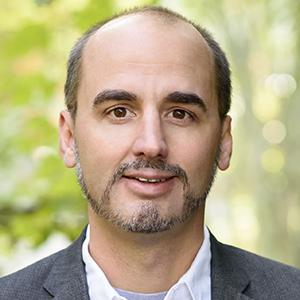Targeting SYK:ZAP70 coexpression in refractory B-cell malignancies

Markus Muschen
PhD, MDYale University
Project Term: July 1, 2022 - June 30, 2025
The B-cell kinase SYK and its T-cell homolog ZAP70 have almost identical functions but are strictly segregated to B- and T-cells. We recently discovered that B-cell malignancies frequently coexpress ZAP70 and that only SYK but not ZAP70 can trigger negative B-cell selection and cell death. Here we test the hypothesis that ZAP70 enables malignant B-cell transformation, test pharmacological SYK-hyperactivation and validate ZAP70 as biomarker of patients who benefit from this approach.
Every day, humans produce ~25 million new B-cells that express autoreactive, potentially harmful, autoantibodies. To prevent pervasive autoimmune disease, a powerful mechanism, termed “negative selection”, is in place to eliminate autoreactive B-cells. Our group recently discovered that “negative selection” also removes pre-malignant B-cells that could give rise to B-cell leukemia and lymphoma. Leveraging negative selection as a unique vulnerability of B-cell tumors represents a previously unrecognized opportunity for treatment and prevention of B-cell malignancies. Importantly, B-cell malignancies that are resistant to conventional chemotherapy remain fully sensitive to pharmacological engagement of negative selection.
B-cell tumors originate from newly developing B-lymphocytes in the bone marrow. Most of these new B-lymphocytes are self-reactive. To prevent production of harmful self-reactive antibodies and autoimmune disease, self-reactive B-lymphocytes are eliminated by a process termed negative selection. While designed to remove autoreactive clones, our laboratory recently demonstrated that B-cell malignancies are also subject to negative selection, which represents a novel opportunity for therapy.
Unlike other cancer-types, B-cell tumors are highly susceptible to targeted engagement of negative selection. We will test an entirely novel class of compounds in this project for their ability to overcome drug-resistance and to prevent B-ALL relapse. Even highly refractory B-cell tumors remain fully sensitive to mechanisms of negative selection. The main impetus of this proposal is to leverage these new concepts for the development of treatment strategies that will overcome conventional mechanisms of drug-resistance in patients with refractory B-cell tumors.
In addition to this emerging concept, we recently observed that tumors derived from early B-cells (B-ALL, MCL and CLL) partially replace expression of the B-cell kinase SYK with its closely related family member ZAP70 that is normally expressed in T-cells. Interestingly, both kinases have almost identical functions, however, only SYK but not ZAP70 can trigger negative B-cell selection. Functional studies confirmed that these tumors use ZAP70 to fine-tune PI3K-strength, further corroborating the scenario that B-ALL, MCL and CLL tumors go to great lengths to avoid elimination by negative B-cell selection.
Based on these observations, we are proposing three Aims to (1) elucidate the mechanism by which SYK-hyperactivation induces cell death in transformed B-cells and how ZAP70-mediated fine-tuning enables malignant transformation in genetic models for B-ALL, MCL and CLL, (2) to test pharmacological approaches to induce SYK-hyperactivation and (3) to validate aberrant expression of the T-cell kinase ZAP70 as a biomarker for patients who will benefit from this new treatment approach.